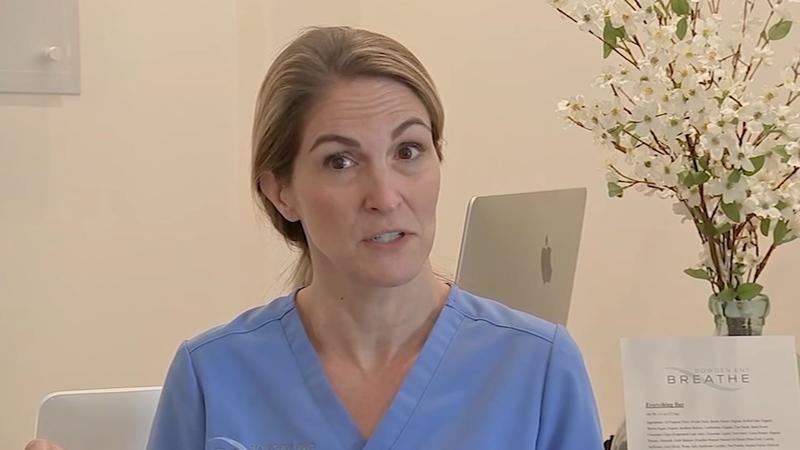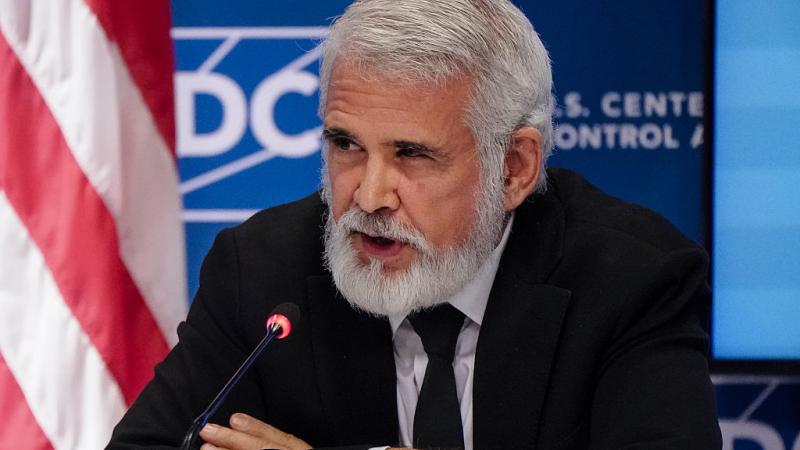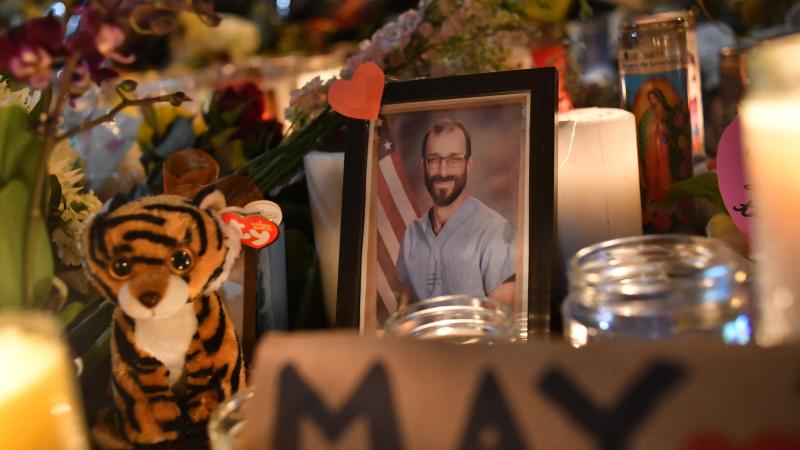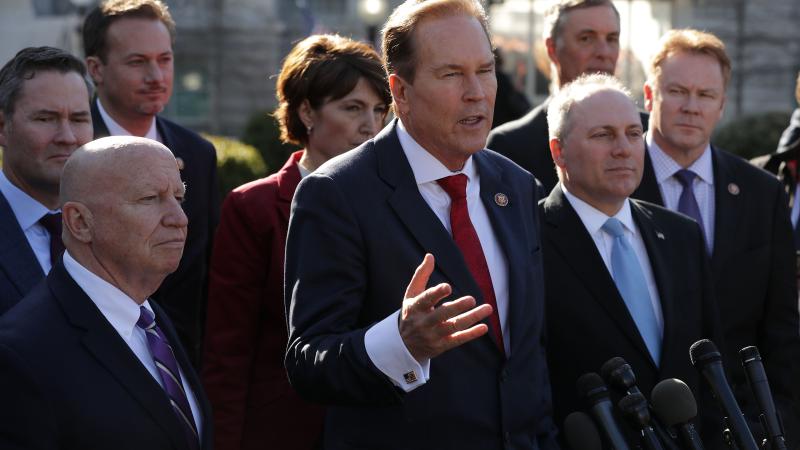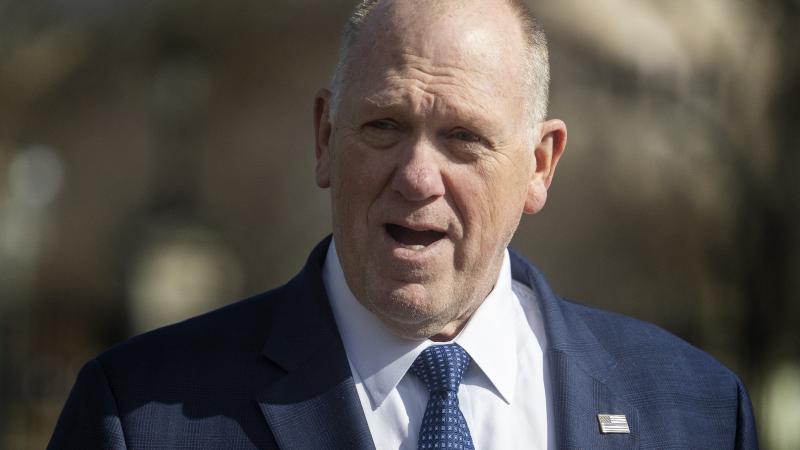'Gaslighting Americans': Doctors back Florida surgeon general in spat with feds over COVID vax recs
Science publishers rejected Cleveland Clinic study that showed previous COVID vaccine was negligible against infection, which was more likely with more jabs, author says. Trump bleach myth won't die in mainstream media.
Americans wary of Florida Surgeon General Joseph Ladapo for his iconoclastic approach to COVID-19 may be surprised to learn that his skepticism of one-size-fits-all recommendations is catching on in the scientific community and is backed by data from a nonprofit health institution second in name recognition to only perhaps the Mayo Clinic.
The science publishing establishment doesn't want to give the data credence, however, with the corresponding author of the research telling Just the News on Monday the Cleveland Clinic team's paper was rejected by peer-reviewed journals and its findings are now outdated.
The Florida Department of Health's updated guidance Sept. 12 for COVID boosters, and Lapado's Sept. 14 broadside against federal public health agencies for "gaslighting Americans" into thinking they need the "unproven" boosters, stands in stark contrast to federal guidance.
The public debate on more than four years of COVID response measures is not going away, with former National Institutes of Health Director Francis Collins promoting his new book on "truth, science, faith and trust" with an excerpt in The Atlantic that repeats the verified falsehood that then-President Trump recommended taking bleach as a COVID treatment.
It's the second time in less than a month that the magazine, which dates to the Civil War, has promoted the bleach myth, a staple of high-ranking Democrats including House Oversight Committee ranking member Jamie Raskin and White House Chief of Staff Jeff Zients.
Scientific American also spread the bleach myth in an editorial endorsing Vice President Kamala Harris for president. The first political endorsement in its 179-year history was then-Democratic presidential nominee Joe Biden in 2020.
The Food and Drug Administration last month fully approved new mRNA COVID vaccines for ages 12 and up and authorized them on an emergency basis for ages six months through 11 years, quickly followed by EUA for the non-mRNA Novavax vaccine.
It said the formulation "corresponds to the Omicron variant KP.2 strain" – which was already fading fast – a late unilateral change made by Center for Biologics Evaluation and Research Director Peter Marks against the recommendation of the FDA's outside advisers.
The Centers for Disease Control and Prevention promotes the new boosters for all ages, claiming that even people with every prior jab "are more likely to get very sick" from COVID without the latest, prompting doctors to ask for the specific data behind those claims.
Ladapo's department urged Floridians not to take mRNA vaccines, the most common, and for providers concerned about infection for patients 65 and up and those with "underlying health conditions" to "prioritize patient access to non-mRNA COVID-19 vaccines and treatment."
It cited the "high rate of global immunity and currently available data" showing a higher risk of myocarditis "and other cardiovascular conditions among otherwise healthy individuals" and possible increased risk for a heart-racing condition and autoimmune diseases.
The guidance cited "studies across geographic regions" that found a higher risk of infection four to six months after the jab, persistent "[e]levated levels" of mRNA and spike protein in some inoculated people and "[p]otential DNA integration" with human sperm and egg gametes.
University of California San Francisco epidemiologist Vinay Prasad, a vocal critic of the evidence base for federal claims, agreed with Ladapo's "gaslighting" language and praised him as "the only surgeon general to my knowledge recommending spending time outdoors, a healthy diet and activity rather than unproven Pfizer boosters."
The health sciences campus in the UC system has unexpectedly emerged as a pebble in the feds' shoe on COVID policy, with Prasad's UCSF colleague Eric Widera – a fan of COVID vaccines until the latest one – asking followers on X if any countries other than the U.S. recommend boosters for children.
The U.K., Australia and Germany don't recommend, while Singapore "encourages" and Hong Kong "allows" but doesn't recommend, said Widera, recently featured in a New York Times feature on routine but dubious medical practices.
The National Health Service England, for example, doesn't offer boosters under 65 except for those "with health conditions that make them more vulnerable," who live in elder care homes and frontline health and social workers. An infectious diseases physician in Denmark told Widera the Scandinavian country has similar rules, and that the U.S. approach is "very unique."
The activity by the feds and Ladapo brought renewed attention to harm-benefit studies from the Cleveland Clinic going back nearly two years.
Its researchers first noticed the positive association between taking more vaccine doses and higher risk of COVID infection in fall 2022, when they tested the effectiveness of new bivalent vaccines on 51,000 employees.
The latest review by researchers from the infectious diseases, infection prevention and quantitative health sciences units of the clinic found the 2023-2024 formulation of mRNA vaccines against the JN.1 variant "afforded a low level of protection" when given to "working-aged adults," offset by the higher risk of infection among the more-jabbed.
Clinical Infectious Diseases, published by Oxford University Press, and Open Forum Infectious Diseases, by the Infectious Diseases Society of America, turned down the May preprint, corresponding author Nabin Shrestha told Just the News.
"We are not pursuing other journals," the Cleveland Clinic staff physician and medical professor, wrote in an email. "The vaccine studied in that paper is no longer in use and the JN.1 variant is effectively gone."
Danish-American UCSF epidemiologist and MIT visiting scholar Tracy Beth Hoeg, who served on a "public health integrity committee" created by GOP Gov. Ron DeSantis and overseen by Ladapo, posted a chart from the study following Florida's guidance.
It shows near-identical "cumulative incidence of COVID-19" rates over four months between vaccinated and unvaccinated groups.
The adjusted estimated effectiveness of 23% "disappears if you do not adjust for prior number of covid vax doses," which positively correlates with infection risk, Hoeg wrote. "This highlights why it would be useful to have randomized data so we have some sense of whether or not these current covid vaccines do prevent infection at all or increase risk long term."
Former Trump administration Surgeon General Jerome Adams, a crusader for expensive COVID therapeutics like vaccines, appeared to put the best light on the findings in response to Hoeg, saying her definition of "effectiveness" was too limited.
"Studies have shown lower risk of hospitalization, death, and subsequent development of many different diseases post vaccination," wrote Adams, now director of health equity at Purdue University. "That’s not insignificant."
Hoeg responded that Adams cited a 2022 study of elderly people's increased risk of developing Alzheimer’s disease within a year of COVID infection, which didn't involve vaccines. The X account Adams cited adheres to the zero-COVID theory that infection is "preventable."
Adams didn't respond to being made aware of his flub. He wouldn't be the first high-ranking fed to misread Hoeg, with Secretary of Education Miguel Cardona falsely invoking her 2021 study of COVID transmission in school as evidence for masking's effectiveness and not correcting himself when she called him out.
The Facts Inside Our Reporter's Notebook
Links
- Joseph Ladapo for his iconoclastic approach to COVID-19
- updated guidance Sept. 12 for COVID boosters
- Lapado's Sept. 14 broadside against federal public health agencies
- excerpt in The Atlantic
- verified falsehood that then-President Trump recommended taking bleach
- promoted the bleach myth
- House Oversight Committee Ranking Member Jamie Raskin
- White House Chief of Staff Jeff Zients
- Scientific American also spread the bleach myth
- fully approved new mRNA COVID vaccines for ages 12 and up
- EUA for the non-mRNA Novavax vaccine
- late unilateral change
- prompting doctors to ask for the specific data
- agreed with Ladapo's "gaslighting" language
- "the only surgeon general to my knowledge
- Eric Widera â a fan of COVID vaccines until the latest one
- any countries other than the U.S. recommend boosters for children
- Widera, recently featured in a New York Times
- National Health Service England, for example, doesn't offer boosters under 65
- infectious diseases physician in Denmark
- effectiveness of new bivalent vaccines
- The latest review by researchers
- "public health integrity committee" created by GOP Gov. Ron DeSantis
- posted a chart from the study
- put the best light on the findings in response to Hoeg
- 2022 study of elderly people's increased risk
- The X account Adams cited
- Miguel Cardona falsely invoking her 2021 study
- when she called him out
